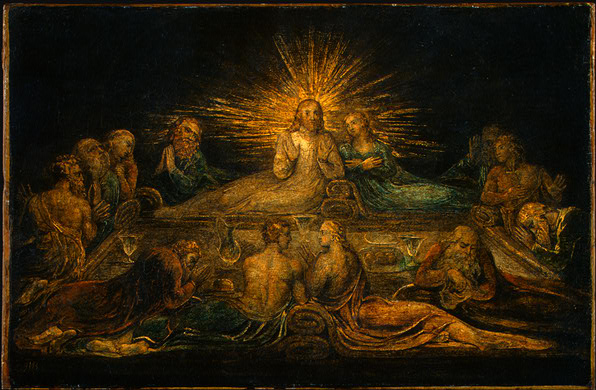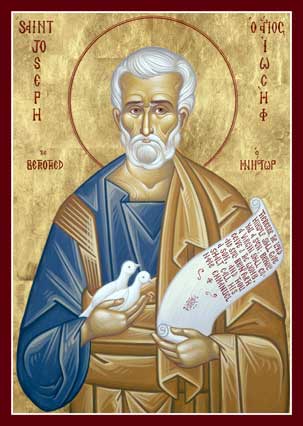The Collect
Assist us mercifully with your grace, Lord God of our salvation, that we may enter with joy upon the meditation of those mighty acts by which you have promised us life and immortality; through Jesus Christ our Lord, who lives and reigns with you and the Holy Spirit, one God, for ever and ever. Amen.
The Old Testament
Isaiah 50:4-9a
The Lord God has given me
the tongue of those who are taught,
that I may know how to sustain with a word
him who is weary.
Morning by morning he awakens;
he awakens my ear
to hear as those who are taught.
The Lord God has opened my ear,
and I was not rebellious;
I turned not backward.
I gave my back to those who strike,
and my cheeks to those who pull out the beard;
I hid not my face
from disgrace and spitting.
But the Lord God helps me;
therefore I have not been disgraced;
therefore I have set my face like a flint,
and I know that I shall not be put to shame.
He who vindicates me is near.
Who will contend with me?
Let us stand up together.
Who is my adversary?
Let him come near to me.
Behold, the Lord God helps me;
who will declare me guilty?
Behold, all of them will wear out like a garment;
the moth will eat them up.
Psalm 69:6-14, 21-22
Salvum me fac
Let not those who trust in you, O Lord God of hosts, be ashamed because of me; * let not those who seek you be confounded through me, O God of Israel.
Surely for your sake have I suffered reproach; * shame has covered my face.
I have become a stranger to my brethren, * unknown to my mother’s children,
Because zeal for your house has consumed me, * and the reproaches of those who reproached you have fallen upon me.
I wept, and humbled myself with fasting, * but that was turned to my reproach.
I put on sackcloth also, * and I became a byword among them.
Those who sit in the gate speak against me, * and the drunkards make songs about me.
But, Lord, I make my prayer to you * in an acceptable time.
Hear me, O God, in the multitude of your mercy, * even in the truth of your salvation.
Reproach has broken my heart; I am full of heaviness; * I looked for some to have pity on me, but there was no one, neither have I found any to comfort me.
They gave me gall to eat, * and when I was thirsty they gave me vinegar to drink.
The Epistle
Hebrews 9:11-28
But when Christ appeared as a high priest of the good things that have come, then through the greater and more perfect tent (not made with hands, that is, not of this creation) he entered once for all into the holy places, not by means of the blood of goats and calves but by means of his own blood, thus securing an eternal redemption. For if the blood of goats and bulls, and the sprinkling of defiled persons with the ashes of a heifer, sanctify for the purification of the flesh, how much more will the blood of Christ, who through the eternal Spirit offered himself without blemish to God, purify our conscience from dead works to serve the living God.
Therefore he is the mediator of a new covenant, so that those who are called may receive the promised eternal inheritance, since a death has occurred that redeems them from the transgressions committed under the first covenant. For where a will is involved, the death of the one who made it must be established. For a will takes effect only at death, since it is not in force as long as the one who made it is alive. Therefore not even the first covenant was inaugurated without blood. For when every commandment of the law had been declared by Moses to all the people, he took the blood of calves and goats, with water and scarlet wool and hyssop, and sprinkled both the book itself and all the people, saying, “This is the blood of the covenant that God commanded for you.” And in the same way he sprinkled with the blood both the tent and all the vessels used in worship. Indeed, under the law almost everything is purified with blood, and without the shedding of blood there is no forgiveness of sins.
Thus it was necessary for the copies of the heavenly things to be purified with these rites, but the heavenly things themselves with better sacrifices than these. For Christ has entered, not into holy places made with hands, which are copies of the true things, but into heaven itself, now to appear in the presence of God on our behalf. Nor was it to offer himself repeatedly, as the high priest enters the holy places every year with blood not his own, for then he would have had to suffer repeatedly since the foundation of the world. But as it is, he has appeared once for all at the end of the ages to put away sin by the sacrifice of himself. And just as it is appointed for man to die once, and after that comes judgment, so Christ, having been offered once to bear the sins of many, will appear a second time, not to deal with sin but to save those who are eagerly waiting for him.
The Gospel
Matthew 26:1-5, 14-25
When Jesus had finished all these sayings, he said to his disciples, “You know that after two days the Passover is coming, and the Son of Man will be delivered up to be crucified.”
Then the chief priests and the elders of the people gathered in the palace of the high priest, whose name was Caiaphas, and plotted together in order to arrest Jesus by stealth and kill him. But they said, “Not during the feast, lest there be an uproar among the people.”
Then one of the twelve, whose name was Judas Iscariot, went to the chief priests and said, “What will you give me if I deliver him over to you?” And they paid him thirty pieces of silver. And from that moment he sought an opportunity to betray him.
Now on the first day of Unleavened Bread the disciples came to Jesus, saying, “Where will you have us prepare for you to eat the Passover?” He said, “Go into the city to a certain man and say to him, ‘The Teacher says, My time is at hand. I will keep the Passover at your house with my disciples.’” And the disciples did as Jesus had directed them, and they prepared the Passover.
When it was evening, he reclined at table with the twelve. And as they were eating, he said, “Truly, I say to you, one of you will betray me.” And they were very sorrowful and began to say to him one after another, “Is it I, Lord?” He answered, “He who has dipped his hand in the dish with me will betray me. The Son of Man goes as it is written of him, but woe to that man by whom the Son of Man is betrayed! It would have been better for that man if he had not been born.” Judas, who would betray him, answered, “Is it I, Rabbi?” He said to him, “You have said so.”
_______________________________________________________
The scripture texts for the Lesson, the Epistle, and Gospel are taken from the English Standard Version Bible. The Collect and Psalm are taken from the Book of Common Prayer (2019).









